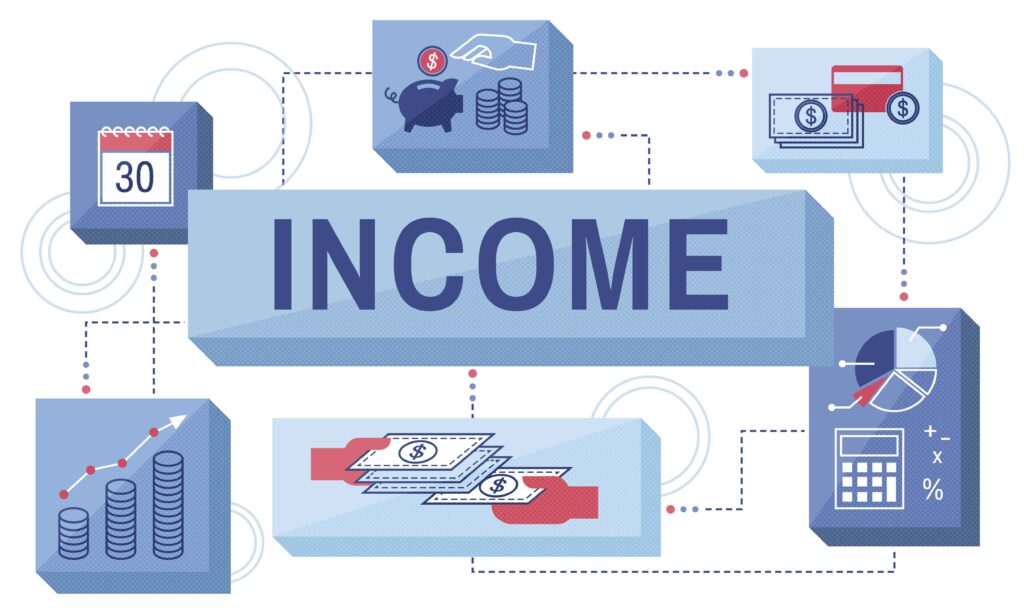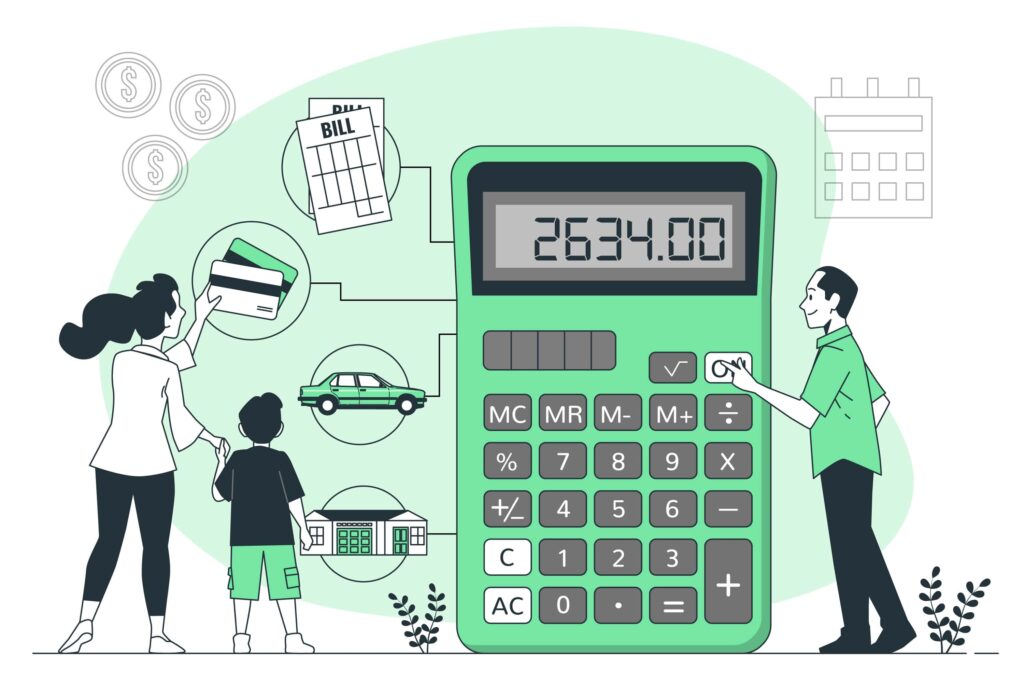As we step into 2025, many of us are reflecting on our financial goals and the strategies we can implement to achieve them.
Discover 5 smart budgeting hacks to save big in 2025! Learn actionable tips to automate savings, cut expenses, and master money management for a financially successful year.

#BudgetingTips #SmartMoneyMoves #FinancialFreedom #SaveBig2025
In a world where economic uncertainties persist, effective budgeting has never been more crucial. 2025 is here, and with the right strategies, you can transform your financial habits, save money, and achieve your financial goals.
Whether you’re looking to pay off debt, save for a home, or simply gain control over your finances, effective budgeting is crucial.
In this article, we’ll explore 5 smart budgeting hacks that can help you save big this year. These strategies are not only practical and easy to implement but also tailored to the current economic landscape, ensuring they are relevant and effective.
1. Embrace the Zero-Based Budgeting Method
What is Zero-Based Budgeting?
Zero-based budgeting (ZBB) is a method where every dollar you earn is allocated to specific expenses, savings, or debt repayment, resulting in a budget that balances zero.

Unlike traditional budgeting approaches that rely on past spending patterns, ZBB requires you to justify every expense each month.
How to Implement Zero-Based Budgeting
- Calculate Your Income: Start by determining your total monthly income, including salaries, freelance work, and any side hustles.
- List All Expenses: Categorize your expenses into fixed (rent, mortgage, utilities) and variable (entertainment, dining out, groceries).
- Assign Every Dollar a Job: Allocate your income to cover all your expenses, savings, and debt payments, ensuring that the total equals zero.
- Track Your Spending: Use budgeting apps or spreadsheets to monitor your spending throughout the month and adjust as necessary.
Benefits of Zero-Based Budgeting
- Increased Awareness: By tracking every dollar, you become more aware of your spending habits and can identify areas for improvement.
- Flexibility: ZBB allows you to adjust your budget based on changing circumstances, making it easier to adapt to financial fluctuations.
- Goal-Oriented: This method encourages you to prioritize your financial goals, whether saving for a vacation or paying off a credit card.
“Do not save what is left after spending, but spend what is left after saving.” – Warren Buffett
2. Leverage Technology for Smart Savings
Budgeting Apps and Tools
In today’s digital age, there are numerous apps and tools designed to simplify budgeting and savings. Here are a few popular options:

- Mint: A comprehensive budgeting tool that tracks your expenses, creates budgets and provides insights into your spending habits.
- YNAB (You Need A Budget): Focuses on proactive budgeting and encourages you to allocate funds before spending them.
- PocketGuard: This helps you track your spending and shows how much disposable income you have after accounting for bills and goals.
Automate Your Savings
One of the best ways to save money is to make it automatic. Set up automatic transfers from your checking account to your savings account. This way, you won’t be tempted to spend what you intend to save. Consider these strategies:
- Savings Challenges: Participate in savings challenges, such as the 52-week challenge, where you save a small amount each week.
- Round-Up Savings: Use apps that round up your purchases to the nearest dollar and save the difference. For instance, if you spend $3.50, the app will transfer $0.50 to your savings account.
Benefits of Technology in Budgeting
- Time-Saving: Automating your finances frees up time and reduces the mental load of managing your budget.
- Real-Time Insights: Technology provides instant feedback on your spending, making it easier to make informed decisions.
“It’s not your salary that makes you rich; it’s your spending habits.” – Charles A. Jaffe
3. The 50/30/20 Rule
Understanding the 50/30/20 Rule
The 50/30/20 rule is a straightforward budgeting strategy that divides your after-tax income into three categories: needs, wants, and savings.

This method helps you prioritize your spending while ensuring you save adequately for the future.
How to Apply the 50/30/20 Rule
- 50% Needs: Allocate 50% of your income to essential expenses, such as housing, utilities, groceries, and transportation.
- 30% Wants: Use 30% of your income for non-essential expenses, like dining out, entertainment, and hobbies.
- 20% Savings: Dedicate 20% of your income to savings, investments, and debt repayment.
Benefits of the 50/30/20 Rule
- Simplicity: This rule provides a clear framework for budgeting, making it easier to follow.
- Balanced Approach: It encourages a balance between spending and saving, allowing for enjoyment while still prioritizing financial health.
A budget is telling your money where to go instead of wondering where it went.” – Dave Ramsey
4. Cut Unnecessary Subscriptions and Memberships
Evaluating Your Subscriptions
In a world where subscriptions have become the norm, it’s easy to lose track of what you’re paying for.

Begin by reviewing all your subscriptions, including streaming services, gym memberships, and apps. Ask yourself:
- Are you using this service regularly?
- Is there a cheaper alternative?
- Can you share a subscription with family or friends?
Strategies to Reduce Subscription Costs
- Consolidate Services: Look for bundles that provide multiple services at a lower cost.
- Negotiate: Don’t hesitate to negotiate prices with service providers. Many companies are willing to reduce rates to retain customers.
- Cancel Unused Subscriptions: If a subscription no longer serves you, cancel it. Even small monthly fees can add up significantly over time.
Benefits of Cutting Subscriptions
- Immediate Savings: Reducing or eliminating subscriptions can lead to immediate savings in your budget.
- Increased Financial Clarity: By evaluating your subscriptions, you gain a clearer understanding of your spending habits.
“Beware of little expenses; a small leak will sink a great ship.” – Benjamin Franklin
5. Plan Meals and Reduce Food Waste
The Importance of Meal Planning
Food expenses can take a substantial portion of your budget, but meal planning can significantly reduce costs.

By planning your meals for the week, you can avoid impulse purchases and reduce food waste.
Steps to Effective Meal Planning
- Create a Weekly Menu: Plan your meals for the week, focusing on recipes that use similar ingredients to minimize waste.
- Make a Shopping List: Based on your menu, create a shopping list and stick to it to avoid unnecessary purchases.
- Batch Cooking: Prepare meals in bulk and freeze portions for later use. This saves time and ensures you have healthy options available.
- Use Leftovers Wisely: Get creative with leftovers by incorporating them into new meals, reducing waste and saving money.
Benefits of Meal Planning
- Cost Savings: Planning meals helps you buy only what you need, reducing grocery bills.
- Healthier Choices: With planned meals, you’re less likely to resort to takeout or unhealthy snacks.
Additional Tips to Boost Your Budgeting Game:

1. Track Your Progress
Monitoring your financial journey is crucial. Use tools like spreadsheets, budgeting apps, or journals to track your income, expenses, and savings. Regular reviews will help you spot trends, adjust your strategies, and stay motivated.
2. Negotiate Bills
Many service providers, such as internet or phone companies, are open to negotiation. Call your providers and ask for discounts or promotional rates—you’d be surprised at how often this works.
3. Build an Emergency Fund
Unexpected expenses can derail your budget. Aim to save at least 3-6 months’ worth of expenses in an emergency fund to avoid dipping into your savings.
4. Educate Yourself
Read books, listen to podcasts, or take courses on personal finance. The more you know, the better equipped you’ll be to make smart financial decisions.
“An investment in knowledge pays the best interest.” – Benjamin Franklin
Final Summary of 5 Smart Budgeting Hacks:
Saving big in 2025 doesn’t have to be overwhelming. By automating your savings, following the 50/30/20 rule, cutting unnecessary expenses, planning meals, and utilizing cashback programs, you can build a solid financial foundation.
These hacks are not just about saving money but also about creating habits that lead to long-term financial success. Start small, stay consistent, and watch your savings grow throughout the year.
Remember, every dollar saved is a step closer to achieving your financial dreams. So why wait? Start implementing these budgeting hacks today and make 2024 your most financially successful year yet!
#MoneyMindset #WealthBuilding #PersonalFinanceGoals #SmartSpending #DebtFreeJourney #MoneyMatters
Recommended Personal Finance Books
1. “The Total Money Makeover” by Dave Ramsey
A practical guide to eliminating debt and building wealth using a step-by-step approach.
Book Buy Link: Amazon Click Here
2. “Your Money or Your Life” by Vicki Robin and Joe Dominguez
This book provides a holistic approach to achieving financial independence and aligning spending with your values.
3. “Rich Dad Poor Dad” by Robert T. Kiyosaki
A classic that contrasts different mindsets about money and introduces concepts like assets and liabilities.
4. “The Psychology of Money” by Morgan Housel
An insightful read on how emotions and behavior affect financial decisions.
5. “Atomic Habits” by James Clear
While not strictly about finance, this book teaches you how to build habits that can also improve your financial discipline.
6. “I Will Teach You to Be Rich” by Ramit Sethi
A fun, practical guide to managing money, including automation and optimizing spending without guilt.
7. “Financial Freedom” by Grant Sabatier
A step-by-step blueprint to achieving financial independence faster than traditional methods.
Other Interesting Posts To Read:
10 Smart Investment Strategies for First-Time Investors
10 Stoic Habits That Can Help & Guide You Toward Financial Independence 🏦
10 Financial Freedom Lessons Men Learn Too Late In Life
Maximizing Productivity: How to Get More Done in Less Time


